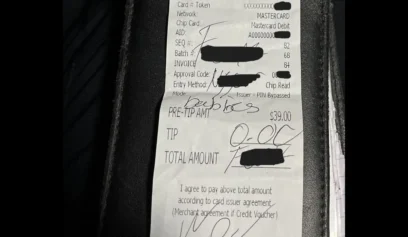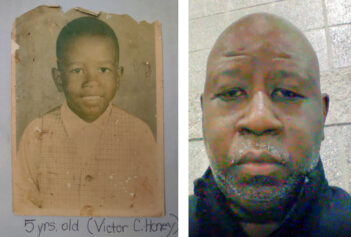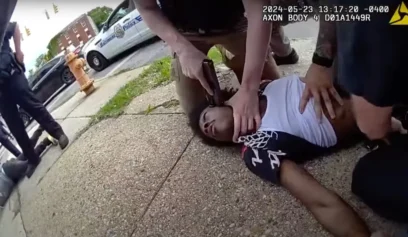“The evidence clearly showed that what they used was physically, forensically, and logically impossible,” said Keith Carnes, 52, a Kansas City man who spent 18 years in a Missouri prison for a crime he says he didn’t commit.
Carnes was charged with murder after a police informant lied, accusing him of killing alleged drug dealer, Larry White in 2003. Years later, the informant admitted to pinning the crime on Carnes after being pressured by police.
“My innocence was my motivation, that’s what pushed me and kept me positive and grounded in the word of God,” Carnes said of what motivated him to continue to fight his murder conviction and prove his innocence for nearly two decades.
In Carnes case, prosecutors banked on eyewitnesses, Wendy Lockett, and Lorraine Morrow, who named Carnes as the shooter in White’s death. In 2014, Morrow recanted her testimony, claiming she was coerced into naming Carnes as the shooter, Lockett also recanted her testimony, the Kansas City Star reports.
Carnes described the ordeal as “a botched investigation by the Kansas City Police Department.”
Carnes’ luck started turning around after the witnesses recanted their testimony and the Missouri Supreme Court threw out Carnes’ murder conviction when they determined prosecutors failed to disclose material evidence to the defense.
“Had a jury known this confidential informant paper existed and didn’t say anything a day after the crime but now here it is, it’s so specific and you know all these intricate facts and details and it just showed they didn’t believe in the outcome of a fair trial,” Carnes said.
An overreliance on informants through eyewitness accounts is a common theme in wrongful conviction cases says attorney and Legal Director at Miracle of Innocence, Christopher Iliff.
“Jailhouse snitches, eyewitness identifications that are false, knowingly false or inaccurate are involved in close to fifty-percent of cases where wrongful convictions occur,” Iliff said.
The Justice Department lists three different kinds of informants, police informants, citizen informants and criminal or jailhouse informants. The Innocence Project says, “in 15% of wrongful conviction cases overturned through DNA testing, statements from people with incentives to testify were critical evidence used to convict innocent people.”
Darryl Burton, founder of Miracle of Innocence was exonerated in 2008 after he spent 23-years in prison for a 1984 murder he did not commit.
In Burton’s case, two eyewitnesses claimed he shot and killed Donald Ball at a gas station in St. Louis, Missouri. Five months after Burton was sentenced to life in prison in 1985, one of the witnesses turned police informant recanted his testimony after admitting he lied and made a deal with prosecutors in exchange for a testimony.
“A lot of prosecutors and a lot of police who have intentionally violated the rights of people like Keith Carnes, Lamonte McIntyre, Darryl Burton and so many others,” Burton said.
To provide an added protections against the misuse of informants in criminal trials, some lawmakers in Missouri introduced legislation in January called the Informant Reliability Act, that would create a record tracking informants used by prosecutors in criminal cases.
It would also disclose if an informant received a benefit in exchange for providing testimony, the prosecuting attorney would have to tell the victim of the benefit the informant is receiving.
“What this does is, it doesn’t mean you can’t use legitimate eyewitnesses but if a witness has been given something for his or her testimony or has been promised something or has been threatened if they don’t testify something bad will happen to them, all of that needs to come out well before trial,” Iliff said of the proposed legislation that has not been scheduled for a hearing in the Missouri General Assembly.
Measures like the proposed Informant Reliability Act could help cut down on wrongful convictions that disproportionately impact Black people, who make up the majority of innocent defendants, the National Registry of Exonerations says.
As for Carnes, he’s grateful for his lawyers part of the Miracle of Innocence organization in Kansas, as they were able to exploit the unreliable eyewitness testimony that helped overturn his 2006 conviction leading to his release from prison last week.
“It’s a good feeling after so many years to be released. It’s a real good feeling to see family, loved ones and supporters,” Carnes said who’s now living with family as he restarts his life. He also started a GoFundMe campaign to help with living expenses.


